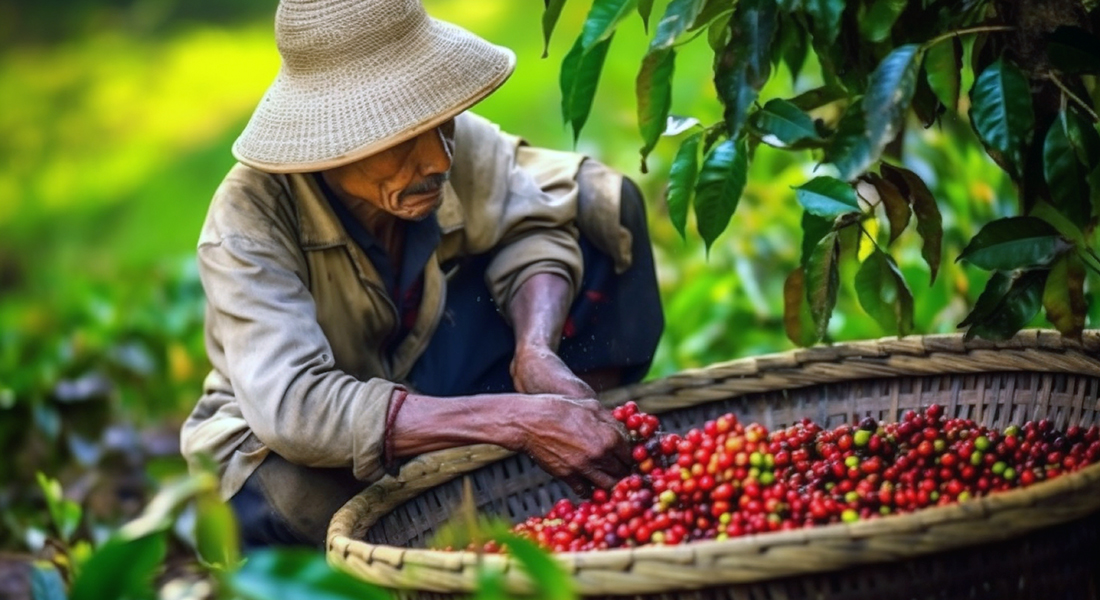Fluctuating coffee prices put mental pressure on Vietnamese farmers
Vietnamese coffee farmers are experiencing significantly more stress and psychological difficulties. This is due to highly volatile coffee prices on international markets, according to a new study by development economists.

While your invigorating morning coffee may become cheaper when there are large fluctuations in the world market price, they are a major additional psychological burden for the farmers who grow the coffee.
This is documented in a new international study on the effect of income uncertainty on the mental health of Vietnamese coffee farmers.
"Our results suggest that not only poverty, but also the risk of poverty caused by fluctuating prices has a significant additional negative effect on the mental well-being of farmers in low-income countries," says Finn Tarp, Professor at the University of Copenhagen and Coordinator of the Development Economics Research Group (DERG).
Poverty and mental illness are linked
According to the WHO, poor mental health is one of the heaviest components of the global burden of disease. This burden is largely borne by people in low-income countries, as mental illness and poverty are closely linked. It is estimated that as much as 80% of the world's depressive disorders occur in low- and middle-income countries, but they are often overlooked, even though they should be at the centre of the struggle against the many dimensions of poverty.
"The soaring socio-economic costs of mental illness are rightly a growing international concern. It is therefore imperative to investigate the underlying sources of mental illness and formulate effective economic policy responses and social interventions," says Finn Tarp.
In Vietnam, volatile coffee prices contribute to the mental health burden by reducing farmers' expectations of future economic prospects, increasing their cognitive load and alcohol consumption - and by reducing farmers' social capital. They also sleep worse, feel more lonely, are depressed, can't concentrate as well as they used to, and feel significantly more diffuse anxiety in an already extremely tense daily life.
Need for a safety net
The new study not only tells us something about public health in Vietnam. The results are likely to be transferable to other low- and middle-income countries whose populations are heavily dependent on agricultural exports, according to the researchers.
The study points to the need for effective social safety nets to protect smallholder farmers from price fluctuations on the world market.
"Governments should consider introducing policies that stabilise farmers' incomes, for example by offering price insurance or increasing access to market-based risk management," suggests Finn Tarp and elaborates:
"At the same time, it is important to raise awareness of the particular problem of mental illness among farmers and offer support to those affected. Better material wealth is necessary to fight poverty, but more is needed to improve the quality of life of individuals."
The study "Commodity price volatility and the psychological well-being of farmers" was conducted by Finn Tarp together with Saurabh Singhal from Lancaster University. It is published in the American Journal of Agricultural Economics and can be read here.
Contact
Finn Tarp
Professor, Development Economics Research Group, University of Copenhagen
Mail: finn.tarp@econ.ku.dk
Phone: +45 93 50 91 61
Simon Knokgaard Halskov
Press og communications advisor
Mail: sih@samf.ku.dk
Phone: +45 93 56 53 29
